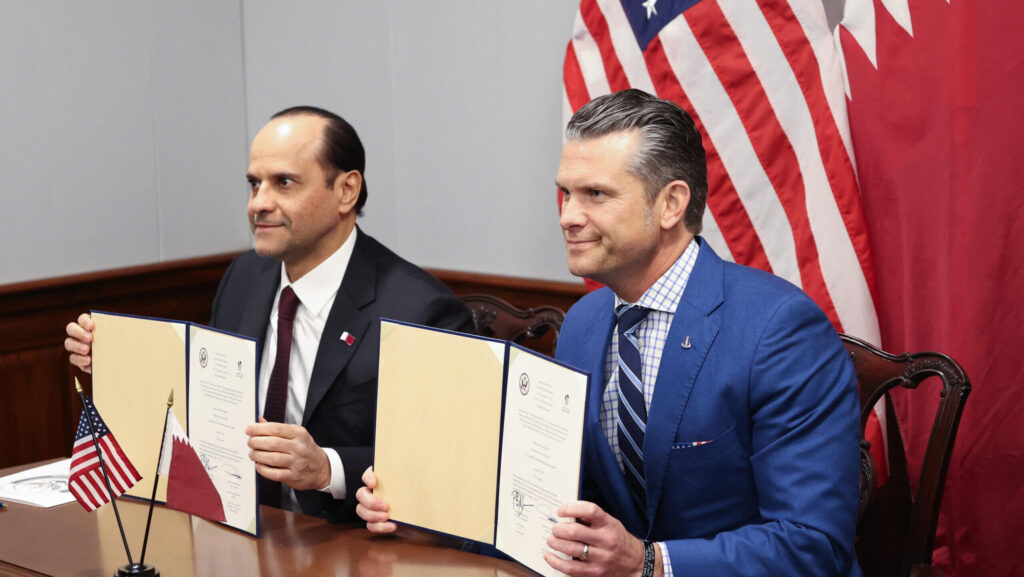
A new training facility for the Qatari Air Force, established at a United States air base, signals a strengthening partnership between the two nations. The announcement was made by US Secretary of Defense Pete Hegseth on October 10, 2023, during a signing ceremony with Qatar’s Defense Minister Saoud bin Abdulrahman Al Thani. This facility, located at Mountain Home Air Base in Idaho, will accommodate Qatari F-15 aircraft and pilots, enhancing joint military training and operational capabilities.
The creation of this training center addresses practical needs for Qatar. It provides a vital space for Qatari pilots and ground crews to conduct training operations and maintain their F-15 jets. According to Rashid Al Mohannadi, a non-resident fellow at the Middle East Council on Global Affairs, the facility alleviates constraints such as limited home airspace, while accelerating pilot proficiency on advanced fighter jets.
The operational support for Qatar’s F-15s is being facilitated through Foreign Military Sales (FMS). A US official noted that the facility will offer advanced training opportunities and bolster combined operational readiness. The establishment of this location allows Qatar to operate and sustain its sophisticated aircraft more effectively.
In 2016, the US State Department approved an FMS of 72 F-15 fighter jets to Qatar, valued at $21.1 billion. The final agreement, signed in 2017, was for 36 jets priced at $12 billion. The first batch of these aircraft was delivered to the Qatari air force in 2021.
Geopolitical Implications of the Training Facility
Beyond the immediate military benefits, analysts interpret the announcement of this facility as a significant geopolitical maneuver. The move comes at a critical time in Middle Eastern politics, reinforcing Qatar’s influence in the US while maintaining good relations with the current administration. Ali Bakir, a professor at Qatar University, emphasized that the new facility enhances Qatar’s standing in the US and is expected to foster job creation, improve infrastructure, and deepen military ties with the US Department of Defense.
In early September, following an Israeli military operation against Hamas in Doha, US President Donald Trump urged Israeli Prime Minister Benjamin Netanyahu to apologize to Qatari leaders. Trump also issued an executive order categorizing any armed attack on Qatar as a threat to US peace and security, further entrenching the relationship between the two nations.
The announcement of the training facility is viewed as a message of “burden-sharing,” highlighting Qatar’s value to Washington at a time when its mediation role and defense ties are under scrutiny. Kristian Alexander, a senior fellow at the Rabdan Security and Defence Institute, noted that this agreement reinforces Qatar’s status as a “Major Non-NATO Ally,” a designation it received in 2022, ensuring alignment with US interests.
Al Mohannadi indicated that such facilities will grant air forces greater operational autonomy, allowing allies in the Gulf region to share responsibilities and reduce the US military footprint in the Middle East, thus enabling a focus on the Asia-Pacific region.
Looking ahead, Bakir suggested that this agreement could lead to additional arms purchases from the US by Qatar. Gulf nations often enhance their leverage through increased defense spending, which includes investing in the US economy and offering commercial opportunities within the region.
The establishment of the training facility represents a strategic alignment that benefits both Qatar and the United States, strengthening military cooperation and enhancing geopolitical stability in a region marked by complexity and change.







